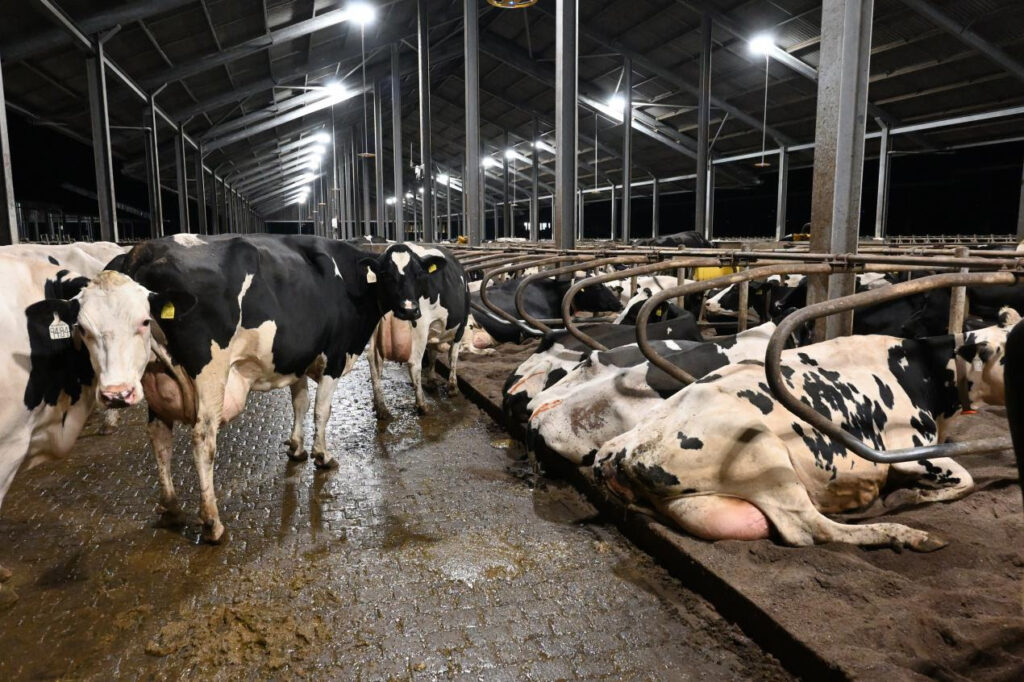New research highlights the lack of awareness surrounding dairy production
Almost a quarter (24 percent) of Brits have stated that they’re willing to go “more vegan” after finding out the truth about dairy farming.
The research, commissioned by Viva!, is part of the animal rights organization’s “Müller Killer” anti-dairy campaign. It was launched in response to a recent investigation exposing the rise of intensive dairy farming in the UK.
It’s thought that around 20 percent of UK “dairy cows” are farmed in “zero-grazing” systems, spending their entire lives inside. They are grain fed and confined in large sheds, rather than pasture. Such farms reportedly supply major dairy companies, including Müller and Arla.
Survey findings

A poll of 2,000 UK adults found that just three in 10 were unaware of zero-grazing cow farms. After they were made aware of it, 69 percent expressed that they were against the system.
Almost half (49 percent) of respondents said that they would be unlikely to buy a dairy product created from this process. Most (56 percent) said it should be banned completely, while 87 percent believed cows deserved a nice life.
A minority of people (41 percent) knew that cows had to get pregnant and give birth to a calf in order to produce milk. Even less (27 percent) were aware that calves were taken from their mothers after birth to be killed or kept in isolation.
Once made aware of the reality of dairy, 24 percent said they’d be willing to go more vegan. The most likely age group to say this was 25-34-year-olds, with 45 percent responding as such.
“The dairy industry does an excellent job of hiding its dirty secrets, so it’s no surprise that the public believes their clever marketing campaigns,” a Viva! spokesperson told Plant Based News. “Viva! encourages anyone who is shocked to learn about the cruelty of the dairy industry to try vegan today.”
The reality of dairy
Viva! investigators visited three of England’s largest dairy farms – and one calf-rearing facility – between 2021 and 2022. These were Pawton Manor in Cornwall, Newburgh Dairy in Dorset, and Lea Manor and Grange Farm in Cheshire.
In evidence the organization described as “damning,” cows were housed in “barren cubicle-style sheds.” The European Food Safety Authority (EFSA) states that zero-grazing systems leave cows at increased risk of “hoof problems, teat tramp, mastitis, metritis, dystocia, ketosis, retained placenta, and some bacterial infections.”
It’s worth noting that even cows kept in grazing systems still likely experience a great deal of pain and suffering in their lives. Farmers make them pregnant with artificial insemination, and take their calves from them hours after birth. Lameness and mastitis are common in dairy cows, and they are sent to the slaughterhouse when their milk supply decreases.
Article Credits: Plant Based News

Pingback: Gordon Ramsay Partners With Vegan Ramen Brand - SLSV - A global media & CSR consultancy network